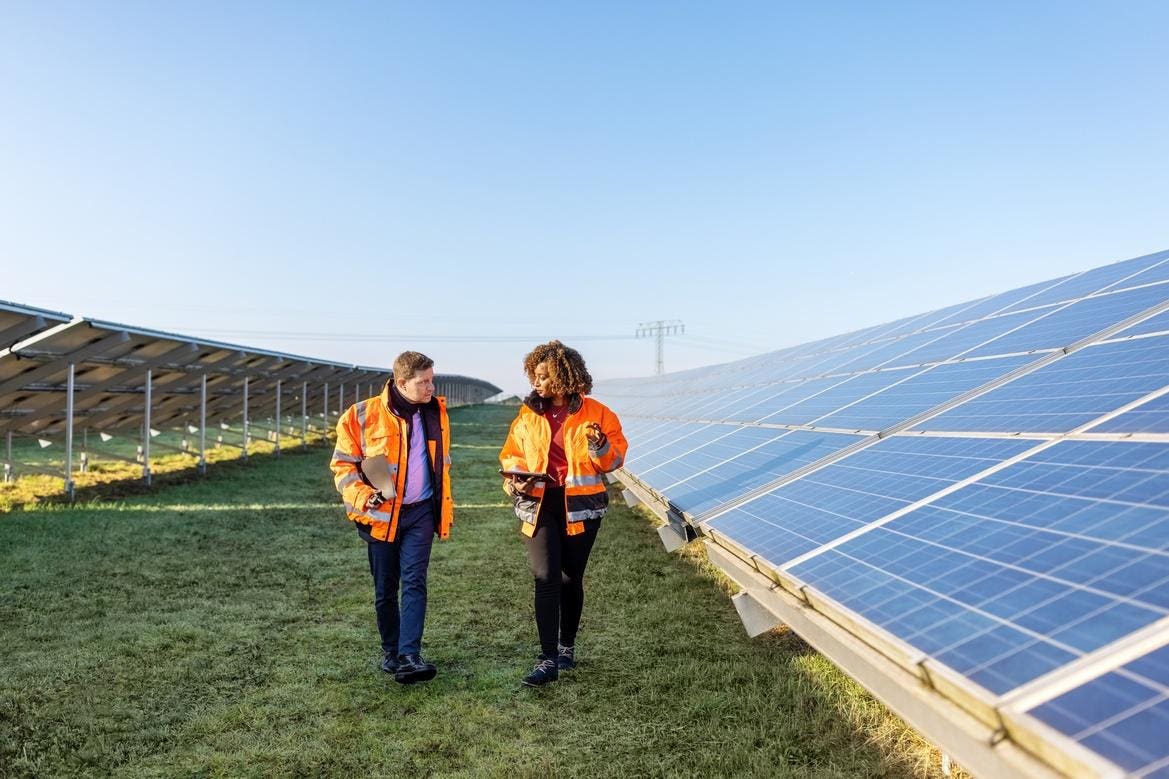Sahit Muja is Founder & CEO at Albanian Minerals, Green Natural Wonders, Green Minerals, Global Mining, Metalplant.
In an era where climate change is accelerating and driving record-high global temperatures, destabilizing weather systems and unleashing economic losses in the trillions, the world finds itself at a tipping point.
Polluted air continues to cause respiratory illnesses. Rising temperatures fuel droughts, floods and wildfires, displacing people. Our oceans, increasingly acidic, are losing their ability to sustain marine life. Clean water is vanishing. Soil is degrading, sometimes turning to dust, from intensive farming practices, deforestation and pollution. Land degradation and desertification creep across continents. The extraction of minerals and metals, though vital for technology, leaves behind destruction, waste and environmental damage. Food systems strain under pressure, threatening global security and human health. These crises are not isolated—they are deeply interconnected.
For over three decades, I have traveled across continents, over 100 countries, seeking nature-based solutions, studying biodiversity, collaborating with local communities and staying abreast of innovations in science, technology and policy. This journey has led me to a clear conclusion: The solutions exist, but what’s missing is meaningful investment.
Taking Action
While climate talks abound, action remains insufficient. In 2025, the $115 trillion world economy towers as a colossal force, yet only a fraction of its vast wealth is committed to confronting climate change.
The path of innovation is never without uncertainty. The green tech landscape can be volatile, buffeted by regulatory shifts, technological hurdles and the wilds of emerging markets. These challenges, however, are the crucible in which the regenerative economy will be forged.
The world stands at a threshold where vision must meet responsibility, where courage must align with investment. A new blueprint is needed. These challenges demand bold, intelligent and beautifully coordinated efforts. A brighter future calls for the transformation of how we power our lives.
Before transformation comes understanding. Business leaders can begin by unveiling the true extent of their organization’s ecological imprint. This means going beyond surface-level metrics and committing to a full-spectrum environmental assessment. Consider collaborating with experienced sustainability consultants or leveraging tools to establish a clear mapping of carbon emissions, material and energy flows, water use and waste across the entire value chain.
This foundational step could uncover critical pressure points and unlock immediate opportunities for impact, from shifting to renewable energy sources to reengineering logistics and supply chains with efficiency and ecological balance in mind.
The Opportunity For Innovation
In the quiet laboratories and buzzing startups of the world, the next revolutions await. Carbon captured from the air, machines that breathe like forests, biofuels born from algae and waste—these are not fantasies, they are necessities.
Water must no longer be treated as an afterthought. We can purify it, conserve it, return it to its sources and ensure that no child suffers for lack of a clean glass or a flowing stream. Technology and tradition can meet in harmony, irrigating the land without bleeding it dry, respecting both the old ways and the new. And with regenerative farming, we could revive the soil beneath us.
Cities must become more than centers of consumption. They can rise as ecosystems of innovation with buildings that create more energy than they use, streets alive with trees and design that respects both people and planet.
In my view, true climate leadership demands the vision to turn decarbonization into a catalyst for prosperity, where innovation, science and integrity converge to build industries that heal rather than harm. Sustainability doesn’t need to be the cost of doing business.
Rebuilding Systems
And at the heart of it all, I think we must remake the system that drives the world: finance. Let capital become conscious. Let bonds support not just profits, but purpose. Let markets reward sustainability and let no innovation fail for lack of courage to fund it. Let’s subsidize hope and open the floodgates of green investment so that the rivers of capital flow toward life, not loss.
The path forward demands we rewrite the rules of value itself, embedding ecological intelligence into finance, design and strategy. I think true transformation lives where moral clarity meets technological precision, and those who lead from that edge could redefine prosperity.
Design is not merely a functional act, it is a statement of values. Rethinking product and service design through the lens of ecological intelligence means privileging materials and systems that support circularity, modularity and regeneration. Employing cradle-to-cradle principles and assembling interdisciplinary teams across design, engineering and operations helps ensure that environmental concerns are not treated as constraints, but as catalysts for innovation.
Much of a product’s environmental footprint is determined in its earliest design stages. Elevating sustainability to a core design imperative could transform downstream impact and align aesthetic and technical brilliance with planetary well-being.
Additionally, profitability must evolve. Integrating sustainability into financial architecture means reimagining what value creation truly entails. This could include embedding environmental, social and governance (ESG) metrics into core performance indicators, applying internal carbon pricing to investment decisions and redefining success through the alignment of executive incentives with long-term environmental goals. When the cost of planetary degradation is internalized into economic models, decision making can shift in meaningful, measurable ways.
A New Horizon
Sustainability is no longer the summit—it is the base camp. The horizon now is regeneration, actively restoring ecosystems, revitalizing communities and repairing broken cycles. This shift demands a bold reorientation of business models: investing in circular economies, championing regenerative agriculture, prioritizing local and just sourcing and partnering with nature rather than extracting from it.
Regenerative strategies are about co-creating value with the living systems we depend on. They can deepen brand integrity, future-proof operations and invite stakeholders into a shared narrative of renewal and possibility.
To lead in this era is to hold both complexity and clarity, to see that every financial choice, every product decision, every strategic move carries an ecological signature. Embedding ecological intelligence into the DNA of business is not a matter of optics or obligation. It is a profound act of leadership.
Forbes Business Council is the foremost growth and networking organization for business owners and leaders. Do I qualify?




